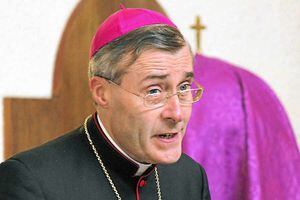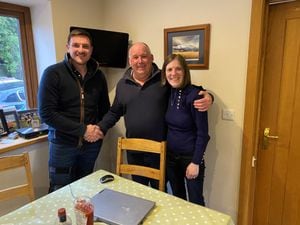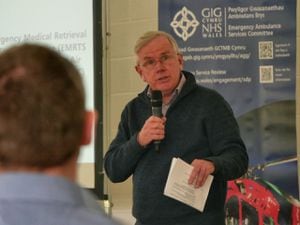Shropshire bishop in new warning on 'assisted dying' law
The Catholic Bishop of Shrewsbury has warned that a bill to legalise assisted suicide may inadvertently lead to the deaths of large numbers of vulnerable people.

In a letter due to be read to congregations across the Diocese of Shrewsbury on Sunday, the Rt Rev Mark Davies says that Lord Falconer's Assisted Dying Bill, which will have its second reading in the House of Lords on July 18, will diminish the legal protection for some of the weakest members of society.
He says: "The proposed change to our laws will license doctors to supply lethal drugs to assist the deaths of those expected to live for six months or less.
"If Parliament allows exceptions to the laws which protect the very sanctity of human life it is impossible to predict where this will end?"
But his claims have been rubbished by a national campaign group which fights for the rights of those with terminal illnesses.
Campaigners fighting for the right to die to be enshrined in law today claimed the measures would end suffering for ailing patients with terminal illnesses.
Sarah Wootton, chief executive of Dignity in Dying said: "Contrary to the Rt Rev Mark Davies' assertions, Lord Falconer's Assisted Dying Bill will add protection for all, and we know this based on evidence from countries which have legalised assisted dying already."
Ms Wootton said she did not believe it was right for either doctors or religious leaders to impose views on people considering ending their lives.
In a letter which will be read in Catholic churches across Shropshire and as far afield as Merseyside, Greater Manchester, Derbyshire and Cheshire, the Rt Rev Mark Davies said he found it "incomprehensible" that such a law was being considered. He compared the issue to the controversy surrounding the legalisation of abortion in 1967.
But Ms Wootton said : "In Oregon, USA, they have a very similar law to that which Lord Falconer will put forward next month, and none of the imagined fears have been realised.
"In fact the Oregon Hospice Association, which was once in opposition to the law, acknowledged 10 years ago that its fears on assisted dying were not realised, and that in fact the choice of assisted dying has worked well and safely for their patients.
"Many of those in the congregations of Shropshire will have seen loved ones suffering unbearably and against their wishes at the end of life, and that may account for the public support this issue has across the board, regardless of religious belief.
"I would urge people to remember that if assisted dying is legal no more people will die, but fewer will suffer. Neither faith leaders nor doctors should be imposing their views on people facing difficult end-of-life decisions."
Bishop Davies says: "This legislation will be presented as a 'compassionate' measure, whose sole aim is to relieve the suffering of the sick and the aged. Yet, it is far from compassionate to remove the legal protections provided for some of the most vulnerable members of society.
"In 1967, the politicians who legalised the killing of unborn children in limited and exceptional circumstances did not foresee how violating the sanctity of human life would lead to the wanton destruction of millions of lives. It is not surprising that many vulnerable people, including those with disabilities, are today worried by Lord Falconer's 'assisted dying' bill."





